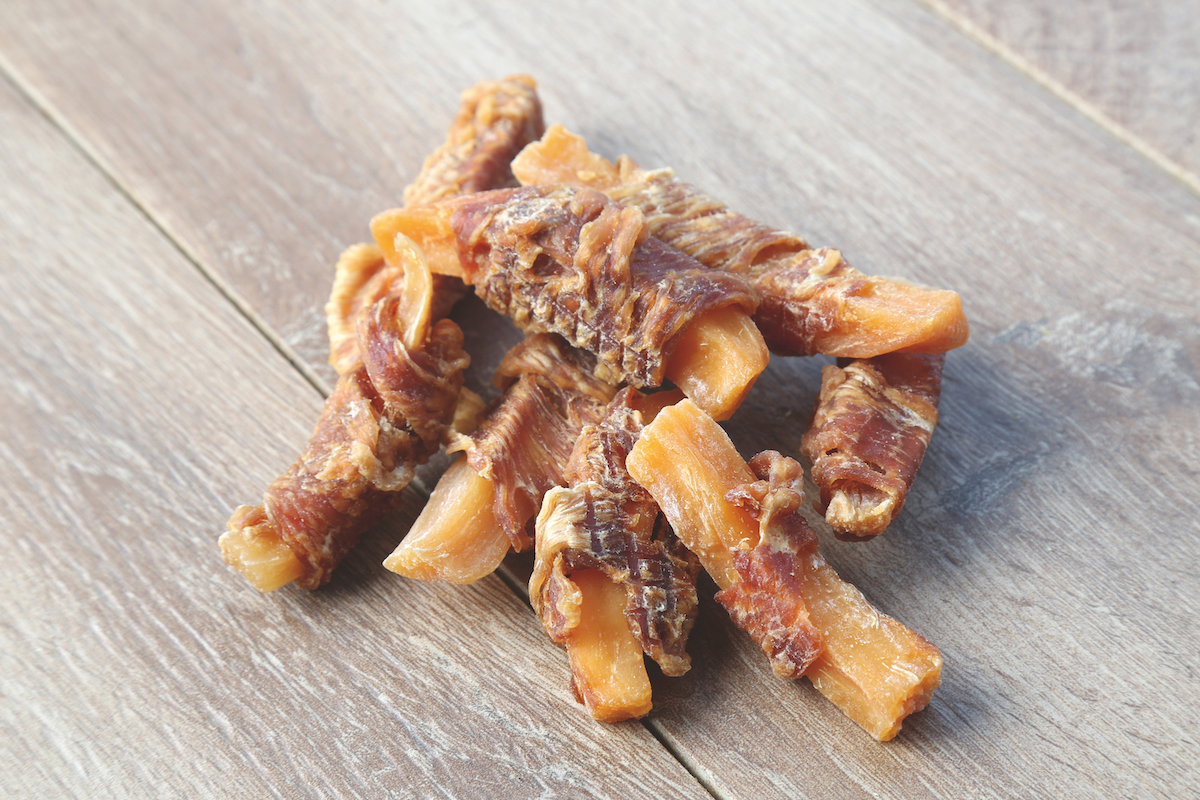Dealing with food allergies in gundogs
What does the vet advise?

Most allergies are triggered by food that has been in a diet for years
Q: My three-year-old red Labrador bitch is pretty much itchy all the time. I am considering trying a low allergy diet. Is this worthwhile? How can you deal with food allergies in gundogs?
A:If your Labrador is permanently itchy (as opposed to the sort of seasonal itch that you might see with pollen allergies) and you have eliminated other possibilities, then experimenting with a hypoallergenic or elimination diet may be worth the time and trouble. Before embarking on it, however, I would ensure that you have her treated for fleas, sarcoptic and demodectic mange (perhaps with a long acting fluralaner chew) and that you have investigated contact allergens, such as bedding (try a cotton sheet), and biological washing machine powders (try Surcare or Fletti). Similarly, the inflammation and infection that inevitably occurs with chronic dermatitis should be addressed prior to test feeding.
Food allergies in gundogs
Food can be a trigger for atopic dermatitis, with most cases starting in dogs less than four-years-old and around one third occurring in dogs of less than a year. Typically, affected dogs are itchy, with redness and skin changes around the feet, ventrum, armpits and flank folds. Self-trauma will always make lesions worse. Some patients will also exhibit gastrointestinal signs, such as diarrhoea, vomiting and gurgly tummy.
It is crucial to remember that dogs will become allergic to foods that have been in their diet for some time (it can be years) and it is unlikely that new foods will be the culprit. It follows, therefore, that the trial diet should exclude any and all protein items that have been previously fed. This would not apply to hydrolysed diets, of which more later. Any protein can potentially be an allergen, including beef, dairy, chicken, pork, fish, lamb, wheat, soy and rice and most dogs, just to confuse the issue, are allergic to more than one thing.
How can food allergies in gundogs be diagnosed?
Obviously, the history and presentation of the patient will raise suspicions but the sad fact of the matter is that the tests available are not entirely accurate. The Sensitest IgE Elisa, which is carried out on a blood sample, has a positive prediction value of about 30 per cent and a negative prediction value of 80 per cent. Confused? What this means is that for every three dogs that test positive for a food allergy, only one actually will be, while for every five negative dogs, one will actually be positive. The proof of the pudding, as they say, is in the eating.

One digestive biscuit per week is enough to scupper a diet
How do I feed an allergic dog?
There is a wee bit of guesswork required here. First, you have to feed a novel protein source that the patient has not experienced before (and that can be awkward). You must avoid all other foods for at least two months. If, for example, your dog is allergic to wheat and you feed salmon and potato, then all will be well, but if your neighbour offers a Digestive biscuit only once a week, then symptoms will return and you are completely wasting your time. Homemade diets have the advantage of you knowing exactly what is in them, but it is difficult to make them nutritionally complete. Pre-packaged hypoallergenic diets are only that if your dog does not react to any of the ingredients and many proprietary foods may contain proteins that are not stated on the label. Consideration must also be given to the possibility of allergens being present in dropped food, scraps, treats, toothpaste, faeces, flavoured medication, and the fact that some people cannot help but cheat and feed dogs surreptitiously.
Gundog terminology explained
I find abbreviations really confusing.
What food is best for my gundog puppy?
I’m 15 years old and about to buy a ten week old cocker spaniel bitch. At the moment it is…
Hydrolysed diets
Most food allergens are 10-70 kilodaltons in size. Hydrolysing reduces proteins to around 5-10kD, which apparently stops them from being immunogenic and prevents them from creating an allergic response. Care must be taken that the proteins are properly hydrolysed and these diets are expensive. It may certainly be worthwhile using them to confirm a food allergy diagnosis and then food items can be introduced one at a time to assess which are the real problem.
If your dog genuinely does have a food allergy, then feeding the right diet can be curative. The process can be difficult and time consuming but the rewards are plentiful. Good luck.










